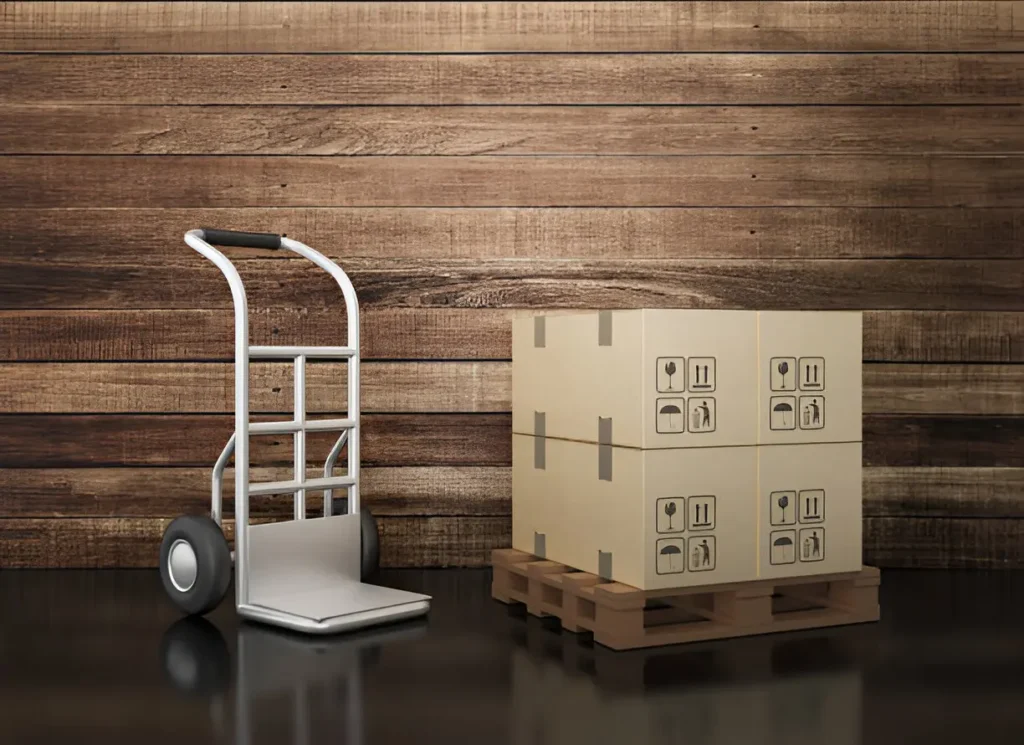Key Takeaways
- Wooden pallets play a crucial role in efficient logistics and supply chain management.
- They offer sustainability benefits by being recyclable and biodegradable.
- Strategic use of wooden pallets can improve warehouse space management.
- Understanding wooden pallet specifications can prevent costly shipping errors.
The Role of Wooden Pallets in Logistics
Wooden pallets are more than just platforms for transporting goods; they are essential tools that boost efficiency across logistics and supply chain operations. According to a recent study on transport efficiency, businesses that utilize wooden pallets can streamline their loading and unloading processes, significantly reducing turnaround times. Trusted pallet suppliers offer a range of wooden pallets that cater to different needs, ensuring reliability and durability.
The importance of wooden pallets in the logistics sector cannot be overstated. Not only do they facilitate easier handling of goods, but they also provide stability during transport, reducing the risk of damage. For instance, consider the advantages of standardized pallets in the automotive industry. Automakers rely on a variety of components from suppliers around the globe, often delivered on wooden pallets. These pallets ensure that parts are handled carefully, minimizing damage and delays. Whether shipping locally or internationally, the choice of a high-quality pallet can make a significant difference in operational efficiency.
Sustainability Benefits of Wooden Pallets
One of the most appealing aspects of wooden pallets is their environmental impact. These pallets are typically made from renewable resources and are recyclable and biodegradable. For businesses prioritizing sustainable operations, opting for wooden pallets can be a step in the right direction. Furthermore, discarded pallets often find new life through recycling programs, transforming them into mulch, biofuel, or even furniture.
Additionally, wooden pallets contribute to the reduction of carbon footprints. Since they are made from natural materials and can be reused multiple times before recycling, they represent a resource-efficient option in the logistics industry. This supports both international sustainability goals and the preservation of natural resources. Companies like IKEA have embraced this approach, demonstrating how wooden pallets can be integrated into a broader sustainability strategy. The environmental benefits, coupled with their practicality, make wooden pallets a smart choice for eco-conscious businesses.
Improving Warehouse Space Management
Efficient warehouse management is another area where wooden pallets can make a significant impact. Businesses can optimize space and improve operational flow by standardizing the dimensions and layouts of warehouses using wooden pallets. Additionally, investing in stackable and nestable pallet designs can free up valuable warehouse real estate, making room for more inventory without requiring additional square footage.
Standardized pallets also facilitate better stacking, reducing the space needed for storage. This can help warehouses handle higher volumes of goods, improve inventory management, and increase overall productivity. For example, a retail giant optimized its warehouse space by reconfiguring the layout to accommodate standardized wooden pallets. This change increased storage capacity and improved the efficiency of their entire supply chain. By enhancing space utilization, businesses can reduce overhead costs and improve profit margins.
Avoiding Shipping Errors with Proper Pallet Use
Shipping errors can be costly, but understanding the specifications and load-bearing capacities of wooden pallets can prevent such mishaps. Businesses that correctly match pallet types to their shipping requirements can avoid damages and ensure that goods arrive in perfect condition. In addition to optimizing palletized shipping, businesses involved in vehicle transportation can benefit from obtaining Car Shipping Manchester services to ensure smooth and reliable auto logistics in the region. This saves money and boosts customer satisfaction by meeting delivery expectations.
For instance, using the wrong type of pallet for a heavy shipment could result in breakage or collapse, leading to damaged goods and unhappy customers. Investing in the right pallets and training staff on their proper use can mitigate these risks, streamline shipping processes, and enhance overall efficiency. A shipping company adopting these practices witnessed a significant decline in damaged goods reports, elevating customer satisfaction levels. This demonstrates that a strategic focus on pallet use can have far-reaching positive impacts on a business.
Future Trends in Wooden Pallet Use
As technology and sustainability trends evolve, so does the use of wooden pallets in logistics. There is a growing interest in incorporating IoT (Internet of Things) technology into pallets, allowing for real-time tracking and monitoring. Additionally, innovation in pallet materials and designs promises lighter, stronger, and more sustainable options for the future.
Emerging trends also include the development of smart pallets equipped with sensors to monitor conditions such as temperature and humidity. These developments will optimize the supply chain by offering insightful data, in addition to guaranteeing the secure transportation of delicate items. Companies that adopt such innovative approaches to pallet use are likely to lead the industry in terms of efficiency and sustainability. As the logistics field continues to evolve, staying ahead of these trends will be crucial for maintaining a competitive edge.
Also Read-How to Choose the Best CRM for Gmail for Your Small Business
